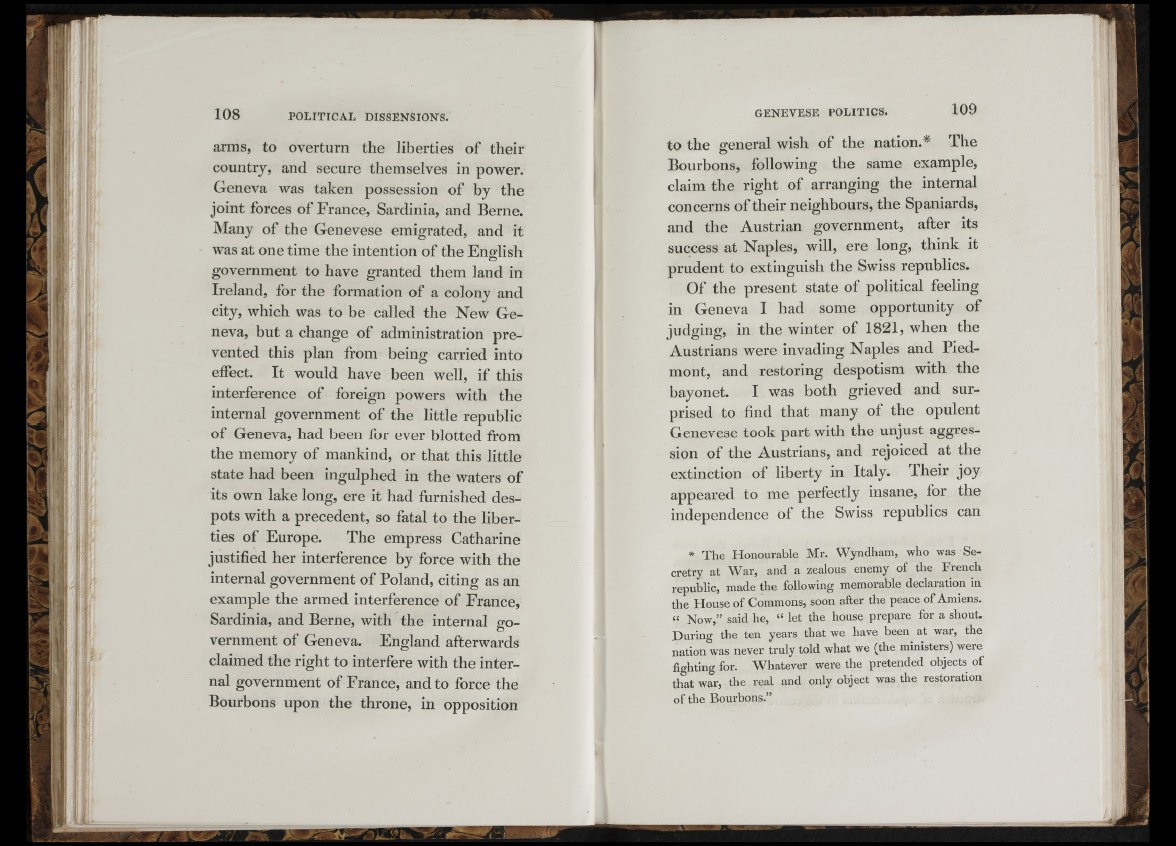
arms, to overturn the liberties o f their
country, and secure themselves in power.
Geneva was taken possession o f by the
joint forces of France, Sardinia, and Berne.
Many of the Genevese emigrated, and it
was at one time the intention o f the English
government to have granted them land in
Ireland, for the formation of a colony and
city, which was to be called the New Geneva,
but a change o f administration prevented
this plan from being carried into
effect. It would have been well, if this
interference of foreign powers with the
internal government o f the little republic
of Geneva, had been for ever blotted from
the memory of mankind, or that this little
state had been ingulphed in the waters of
its own lake long, ere it had furnished despots
with a precedent, so fatal to the liberties
o f Europe. The empress Catharine
justified her interference by force with the
internal government o f Poland, citing as an
example the armed interference of France,
Sardinia, and Berne, with the internal government
of Geneva. England afterwards
claimed the right to interfere with the internal
government of France, and to force the
Bourbons upon the throne, in opposition
to the general wish of the nation.* The
Bourbons, following the same example,
claim the right of arranging the internal
concerns of their neighbours, the Spaniards,
and the Austrian government, after its
success at Naples, will, ere long, think it
prudent to extinguish the Swiss republics.
Of the present state of political feeling
in Geneva I had some opportunity of
judging, in the winter of 1821, when the
Austrians were invading Naples and Piedmont,
and restoring despotism with the
bayonet. I was both grieved and surprised
to find that many of the opulent
Genevese took part with the unjust aggression
of the Austrians, and rejoiced at the
extinction of liberty in Italy. Their joy
appeared to me perfectly insane, for the
independence of the Swiss republics can
* The Honourable Mr. Wyndham, who was Se-
cretry at War, and a zealous enemy of the French
republic, made the following memorable declaration in
the House of Commons, soon after the peace of Amiens.
“ Now,” said he, “ let the house prepare for a shout.
During the ten years that we have been at war, the
nation was never truly told what we (the ministers) were
fighting for. Whatever were the pretended objects of
that war, the real and only object was the restoration
of the Bourbons.”